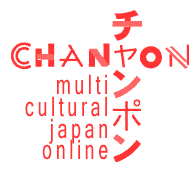2004年01月21日 水曜日
Translating Nintendo
by Justin Hall
Games
When movies are brought between countries, subtitles or dubbed vocals are added - requiring textual translation. When video games are brought between countries, not on the words of the script must be translated, but also the video game commands. Do gamers in one nation favor different buttons on their controller? Do they understand movement on the screen differently?
Often because games can involve dozens of hours of play, there are specific moments of content that must be excised or altered for different national markets. Videogame translation or "localization" is a fascinating way to examine regional differences in gameplay.
 Game Informer is running an interview with Bill Trinen, a Localization Producer for Nintendo. Besides translating game materials, he also translates speeches for famed Mario/Zelda game designer Miyamoto Shigeru. I saw a speech he translated for Miyamoto in 2001 - the picture running with this piece is a picture I took that day. The interview provides some insight into the localization process and the day-to-day work of being a media translator. Obviously, Japanese puns present a challenge.
Game Informer is running an interview with Bill Trinen, a Localization Producer for Nintendo. Besides translating game materials, he also translates speeches for famed Mario/Zelda game designer Miyamoto Shigeru. I saw a speech he translated for Miyamoto in 2001 - the picture running with this piece is a picture I took that day. The interview provides some insight into the localization process and the day-to-day work of being a media translator. Obviously, Japanese puns present a challenge.
Trinen explains that the Nintedo game that my American friends talked about in the last year, Animal Crossing, was designed as a "very Japan-centric game" (there's tanuki, extensive gift-giving, lots of turnips, a special emphasis on the passing of seasons). It was completely rewritten to be more accessible to the American audience. There's some fascinating material lost and created in the gap between "Japanese" and "foreign" when translating a game as complex as Animal Crossing. There are probably graduate theses existing or imminent exploring that game chanponizing; sadly this article just touches upon it.
Posted by Justin Hall at 2004年01月21日 23:05

Comments
Wow... at the risk of sounding like commentspam, fascinating article.
はじめまして。みなさまm(__)m日本人のあべちゃんです。実は任天堂本社の近くにすんでます^^;世界的に有名になりつつある任天堂ですが、実は昔は、ここまでおおきくなるとはどの地域の周りのひとも思ってなかったぐらい散っちゃ名会社なのでした^^;時代が任天堂をおおきくしたのかな~?チャンチャン(笑)
I remember talking about this over dinner. Fascinating topic. What this reminds me of is what I thought of how far translation could go when I was in my early teens. I favored a short-short story writer 星新一(Hoshi Shin'ichi) just because I liked his stories and writing style. But I thought of Hoshi's stories in specific because his stories often seemed so culturally transportable.
Most literary translations have decided to stick with trying to preserve the 'cultural' (is that synonymous with 'foreign' or 'exotic'?) flavor of a text. It's intersting to see the different directions the game industry and literary world has chosen to take. I also think it's telling of the different concerns and assumptions of the different worlds. Hmmm....
I translate games from Japanese to English for a living (not just games, but they make up a good portion of my work).
I remember one game I translated last year...It had a dad asking his son if he could take baths with him (the son is a teenager), and feeling dejected when the son repeatedly says 'no'. Now in Japan where parents regularly take baths with their children (although maybe not into teenage years), this would raise no eyebrows, but I couldn't help wondering what Americans would think of it.